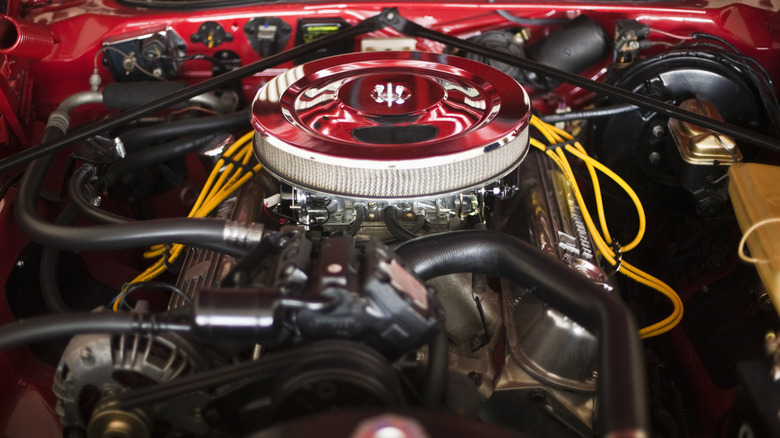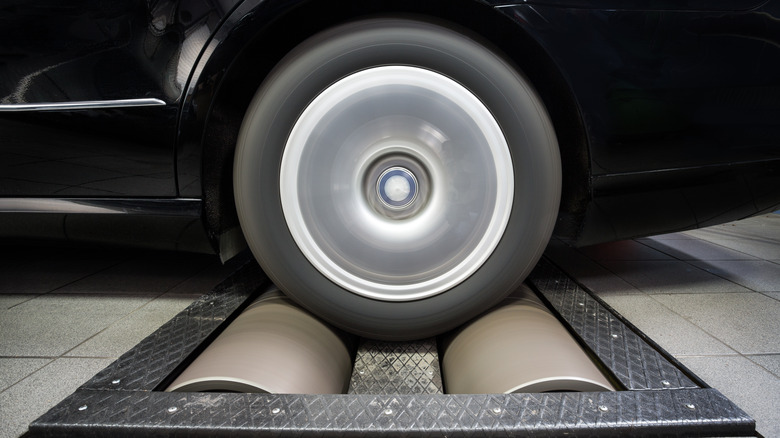What Is Brake Horsepower, And How Is It Different From Regular Horsepower?
The practice of measuring a car engine's overall strength in horsepower dates all the way back to 18th-century Scotland, when James Watt invented the steam engine and devised a metric to measure its output. While this old process of calculating horsepower actually did have something to do with horses pulling large weights, today we can explain that horsepower is merely a simple statistic to give you a rough idea of how quickly your car's engine can get things up to speed.
However, it's important to remember that an engine is a complicated piece of machinery, made up of a multitude of moving, interconnected parts. When you introduce so many additional components into the otherwise relatively simple process of generating energy, you might not get exactly as much output as you'd expect from the horsepower rating on your car's pricing sticker. Energy is quite excitable, after all, and it's always looking for a fast way to escape its confines. It's for this reason that a similar, yet distinct statistic exists to give you a slightly more accurate idea of what your full, complete vehicle is actually capable of: brake horsepower.
Brake horsepower: horsepower minus power lost to friction
To put it in the simplest possible terms, an engine's brake horsepower is the horsepower you're able to get when the engine is actually generating and transferring power.
Let's say you've got a standalone engine on the workbench. This hypothetical engine has a stated horsepower rating of 150. However, when you power the engine up, the actual horsepower you get is slightly less than advertised, around 147 and change. This is because, even though the engine is producing 150 horsepower, some of that output is getting sucked up by the movement of the engine's mechanical components. A little bit of that energy always slips away in the friction and operation of the engine and, if it's attached to a car, the car's drivetrain components. When the power from a car's engine finally makes it to the crank and powers the wheels, it's always going to be slightly less than it started at. That output is your brake horsepower.
Generally, brake horsepower is calculated at an approximate ratio of 1 horsepower to 0.99 brake horsepower. The loss of power is pretty small, but if you've got an engine with higher raw horsepower, then that means the losses to the mechanical processes are proportionally larger as well.

